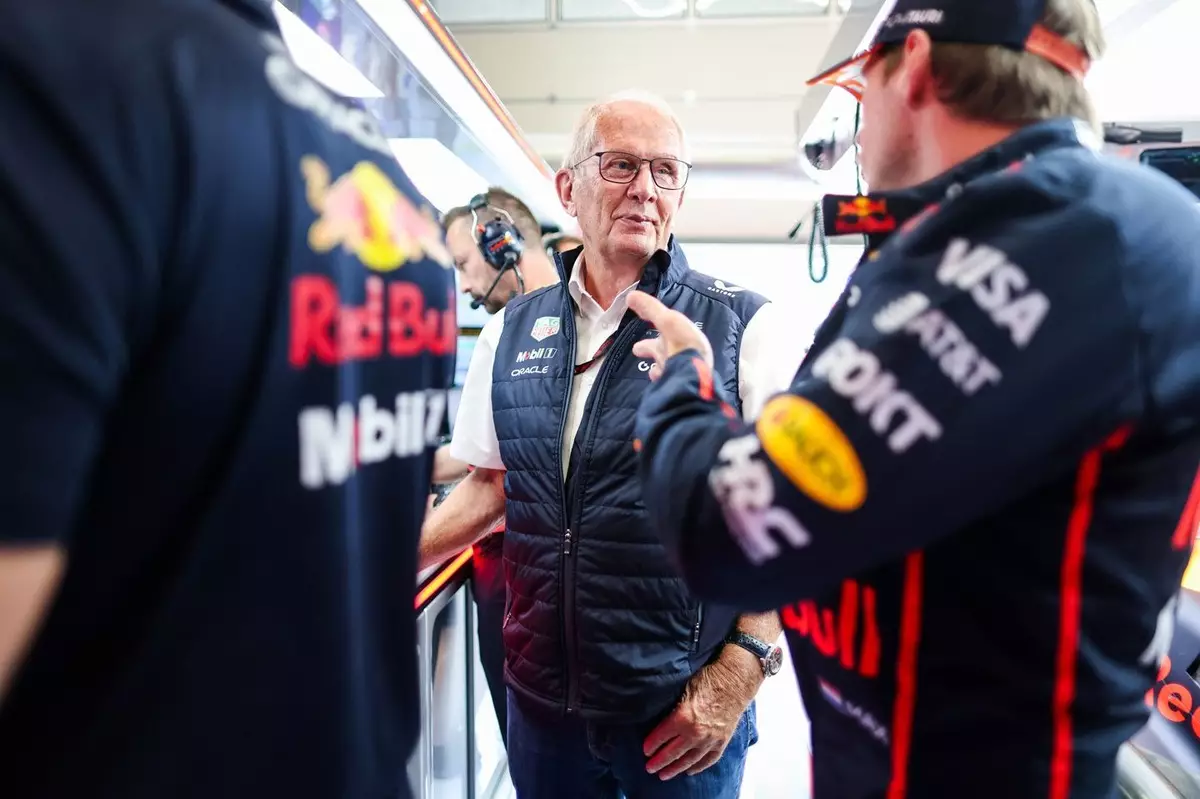In Formula 1, where performance and loyalty often collide like high-speed collisions on treacherous circuits, Max Verstappen’s current predicament exemplifies the fragile balance teams and drivers must maintain. Despite his undeniable talent and recent contract extensions, speculation about Verstappen’s future with Red Bull has gained traction, owing to his recent string of disappointing results. The Austrian GP, marred by an early crash and a lackluster race, served as a stark reminder that even the most dominant drivers are not immune to the winds of change. While the team’s top officials publicly remain unwavering—Helmut Marko emphasizing the solidity of Verstappen’s commitments—there’s a growing undercurrent of doubt influenced by Verstappen’s own ambiguous remarks.
This dissonance highlights a fundamental truth in modern F1: contractual guarantees can be fragile, and driver loyalty is often tested when victories stall and races falter. Verstappen’s curt response about his future—”I don’t think we need to talk about that”—underscores a disconnect between official team messages and a driver’s personal uncertainty or dissatisfaction. His body language, words, and recent performances seem to whisper a question that many fans are asking silently: Is Verstappen still fully committed to Red Bull? Or is he contemplating a future that offers more consistency, stability, and perhaps, a fresh challenge?
The Impact of Downturns on a Champion’s Mindset
Everyone in F1 recognizes Verstappen as a fierce competitor with four World Championships under his belt. Yet, even the best athletes face periods of adversity. The current dry spell—lasting five races since his last victory—might be more than just a temporary slump; it could symbolize an internal shift, a questioning of the team’s ability to support his ambitions. Such moments are pivotal, especially when a driver’s personal aspirations clash with team dynamics or strategic shortcomings.
The Austrian GP’s outcome, where Verstappen was involved in an early collision and inevitably withdrew, underscores the unpredictability of racing—what once seemed a near-guarantee of victory now feels like a fragile success. His whereabouts during the race—tuning into a GT race—further illustrate a mounting mental distraction, possibly signaling he isn’t entirely invested in the current campaign. This psychological dissonance can have a cascading effect, eroding confidence and increasing susceptibility to tactical decisions driven more by pragmatism than passion.
Contractual Security or Conditional Escape Route?
The narrative surrounding Verstappen’s future has been fueled by whispers of “exit clauses” woven into his contract, which allegedly could be triggered should his or the team’s performance decline drastically. While Helmut Marko dismisses these rumors as speculative, no conspiracy theory in F1 is too far-fetched. Drivers of Verstappen’s caliber often have contingency plans, and the current faltering results arguably ignite questions about whether his mind is already exploring avenues outside Red Bull’s orbit.
Contract clauses intended for performance leverage are double-edged swords; they serve as assurances but also as potential escape routes. The credibility of Marko’s assertion—that contract commitments are intact—relies heavily on internal trust and the perception of stability. Given Verstappen’s ambiguous responses and recent performances, one could argue that the Dutch driver’s mindset is less about loyalty and more about pragmatism. Is his silence about future plans an indication of disengagement, or simply a strategic move to keep options open? It’s a question that only time and perhaps Verstappen himself can definitively answer.
The Broader Implication: Leadership in Crisis?
In a sport where every second, split-second decision, and strategic gamble counts, a champion’s ability to withstand adversity reflects not just personal resilience but also the strength of their team environment. Red Bull has been formidable—winning constructor titles and dominating circuits. Yet, the tension underlying its current stability surfaces questions about the future of their crown jewel. If Verstappen begins to doubt the team’s capability to deliver consistent victories, we may witness a leadership crisis that could redefine the team’s trajectory.
Moreover, the optics of recent results—particularly Verstappen’s absence from the winner’s circle and his apparent detachment—could influence younger drivers, sponsors, and competitive teams. The sport’s narrative becomes more complex when a champion shows signs of wavering, emphasizing that in F1, dominance is neither guaranteed nor eternal. Showing vulnerability and facing setbacks often catalyze transformation, either into renewed greatness or gradual decline.
While Red Bull remains publicly committed, the underlying tensions suggest that the road ahead involves more than just technical upgrades and strategic adjustments—it hinges on the intangible qualities of trust, motivation, and shared vision. Whether Verstappen stays committed or charts a new course, the story unfolding isn’t simply about a racing season but about the very essence of competitive resilience in modern motorsport.


Leave a Reply